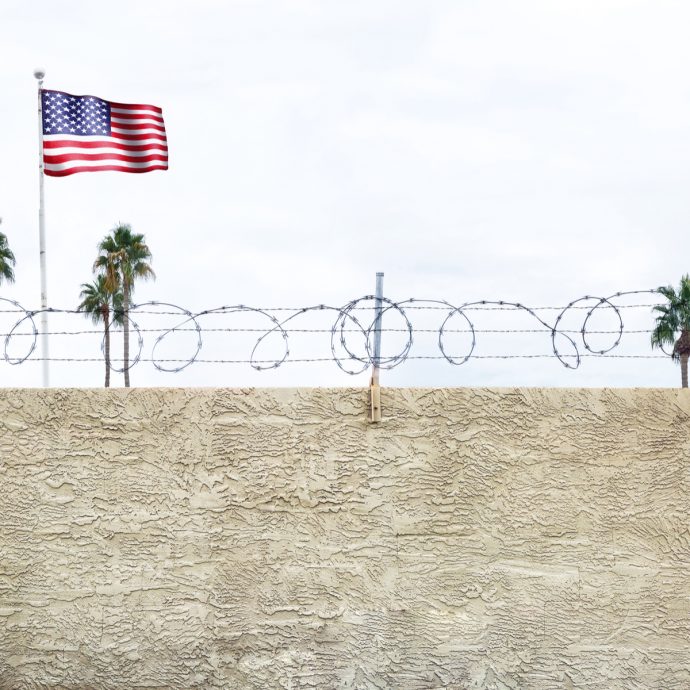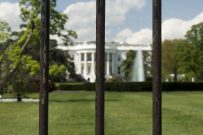We are settling into a lasting pattern of both parties in Congress assuming it is the courts’ job, not their own, to protect their institutional power.
Government by Emergency
To start with first principles, emergencies “emerge.” They do so suddenly and, in the definition of the Oxford English Dictionary, “unexpectedly.” President Trump’s proclamation of a national emergency at the southern border instead called illegal immigration a “long-standing” problem that has gone on for “years.” It is no more etymologically accurate to say the nation faces an emergency of illegal immigration on the southern border than to say it confronts an emergency of congressional spinelessness in the face of executive power. Both are problems, neither is emergent.
We can spare ourselves the alarmism: President Trump is not the first President to assert emergency power. The claim that this one represents a constitutional Rubicon is symptomatic of a politics of amnesia, according to which the past is not only a foreign country, it is a wholly undiscovered one. If the President has crossed a Rubicon, he will have the company of several of his predecessors on the opposite bank.
It is true, of course, that this emergency declaration is particularly problematic in that it draws funds from the Treasury for purposes Congress has specifically rejected, not for ones for which a President concludes he cannot wait. Taken to its logical extreme—which it will be—this would vitiate the appropriations process altogether. The Constitution’s specification that funds cannot be drawn from the Treasury except by congressional appropriation is there not only to assure accountability to the people for the expenditure of their money but also as a weapon for imposing popular will across the board. Federalist 58 explains that the House’s “power over the purse may, in fact, be regarded as the most complete and effectual weapon, with which any constitution can arm the immediate representatives of the people, for obtaining a redress of every grievance, and for carrying into effect every just and salutary measure.”
But this was all latent in the real problem: the National Emergencies Act of 1976. Congress can reassert itself not merely by terminating this emergency—which the act says Congress can do by joint resolution—but also by repealing the underlying authority to declare them.
Whether it will do so, of course, is questionable at best. Members of Congress of both parties view themselves as adjuncts or opponents of the real center of constitutional power, the presidency. Mitch McConnell is thus backing the President despite having warned him against this course of action. So, predictably, is the craven Lindsey Graham, whose salary the federal Treasury could save by replacing him with a Twitter bot that reflexively tweets, “I stand [insert adverb] behind the president on [insert issue].” Republicans on the whole are said to “fear” having to vote on defending their own authority.
That is pathetic. On the other hand, there are signs of institutional assertion. Democrats are appropriately if opportunistically apoplectic. House Speaker Nancy Pelosi and Senate Minority Leader Chuck Schumer are coming off like the adult constitutionalists in the room simply by invoking Madisonian ambition: “The Congress,” they said in a joint statement, “will defend our constitutional authorities.”
This music to constitutionalists’ ears is obscured by the certainty that the symphony would stop playing with a Democrat in the White House. The real constitutional test is whether Republicans will take a stand not against a wall but rather for their authority. More than 20 have indicated their opposition to this instance of presidential fiat. Some members of Congress are predicting the courts will referee the dispute, but it would be constitutionally healthier if Congress stood up for itself both by rejecting this declaration and repealing the statute that enables it.
The root problem arises from a noble intent to curb the abuse of emergency declarations by codifying them. But it is in the nature of emergencies to be subject to prudence, not statute. Nearly by definition, they operate outside the channels of normal law, subject to the constraints of political instruments like public opinion and impeachment. Burke warned against devising rules for the ordinary case from the extreme one. But a lawyer’s reflex is to anticipate all eventualities and delineate all consequences. The irony, as President Trump has just reminded us, is that doing so licenses rather than restrains emergency powers.
Prudence often operates in shadows where law cannot. Lincoln supplies the classic example. His defenders in the legal academy have generally held that Lincoln’s actions early in the Civil War—suspending habeas corpus, enlisting troops, blockading ports—were constitutional because they were necessary. It is more accurate to say necessity compelled Lincoln to step outside the law and, crucially, to be accountable for doing so.
Jefferson captured the essence of the issue. Those “charged with petty duties,” where consequences are trifling, and time allowed for a legal course,” were bound to law. By contrast:
It is incumbent on those only who accept of great charges, to risk themselves on great occasions, when the safety of the nation, or some of its very high interests are at stake. An officer is bound to obey orders; yet he would be a bad one who should do it in cases for which they were not intended, and which involved the most important consequences. The line of discrimination between cases may be difficult; but the good officer is bound to draw it at his own peril, and throw himself on the justice of his country and the rectitude of his motives.
The key in Jefferson’s conception of prerogative is that the executive officer accepts the “risk” and “peril” of his decision and “throw[s] himself” on defenses under plainly political superintendence. The fact of an emergency does not sanctify any presidential action. The country’s deliberative acceptance of it does. That the country’s rejection of such an action outside normal law carries the highest consequences for Presidents discourages its overuse.
By contrast, the Congressional Research Service has identified at least 30 emergency proclamations in effect under the National Emergencies Act. The oldest dates to the Carter Administration, which issued the declaration 40 years ago. Two generations of crisis are enough.
The National Emergencies Act reflects lawyers’ understandable infatuation with law. But law is made for normal, predictable circumstances. Prudence must handle the rest. Our resistance to it reflects a fear of making distinctions, a mark of philosophical exploration and responsible politics. Lawyers are resistant to judgment because judgment entails the unpredictable.
But making everything predictable entails consequences too. Disallowing emergencies under some circumstances involves permitting them in others. If it is true that “power is of an encroaching nature,” we should expect those other circumstances to be exploited. The National Emergencies Act, in the name of inhibiting presidential abuse, actually makes it possible to normalize what should be extraordinary executive power.
It is far less likely that President Trump would have invoked extraordinary powers under Jeffersonian circumstances of accountability for an unpopular wall, especially when his judges would be members of Congress mostly on record as opposed to this action. That would have entailed meaningful political “peril,” which is a stronger restraint on presidential behavior than a statute that actually shows the way toward legal emergencies.
Indeed, it is unclear why Congress bothers with the antiquated process of passing statutes given the now accepted authority of Presidents of both parties to ignore them. It is no coincidence that at the same time President Trump issued his emergency declaration, he also signed a funding bill averting another government shutdown, attaching a signing statement indicating that more than two dozen provisions of the law to which he had just affixed his name were constitutionally suspect and thus, apparently, optional.
None of this means there should never be a legal process for a presidential proclamation. As the Congressional Research Service notes, Congress provided one President Washington used before putting down the Whiskey Rebellion. The problem is a particular type of delegation of congressional authority: the kind in which a single declaration triggers an array of what CRS, in the same report, calls “stand-by statutory provisions.” Is it necessary to know more than that Woodrow Wilson was the first President to use such a tool?
The subsequent use of emergencies became so prolific that Congress attempted to restrain them by dictating the terms under which they could be declared. Hence the National Emergencies Act and a long list of statutes triggered by it. It is clear enough that it has not worked. It is less a web in which to restrain Presidents than a safety net for protecting their abuses.
Forcing emergencies back into the realm of prudence would require Presidents to contemplate consequences more carefully and the people to respond more deliberately. The National Emergencies Act, in the name of telling Presidents where not to go, provides a lawful road map for getting there. It should be repealed.



